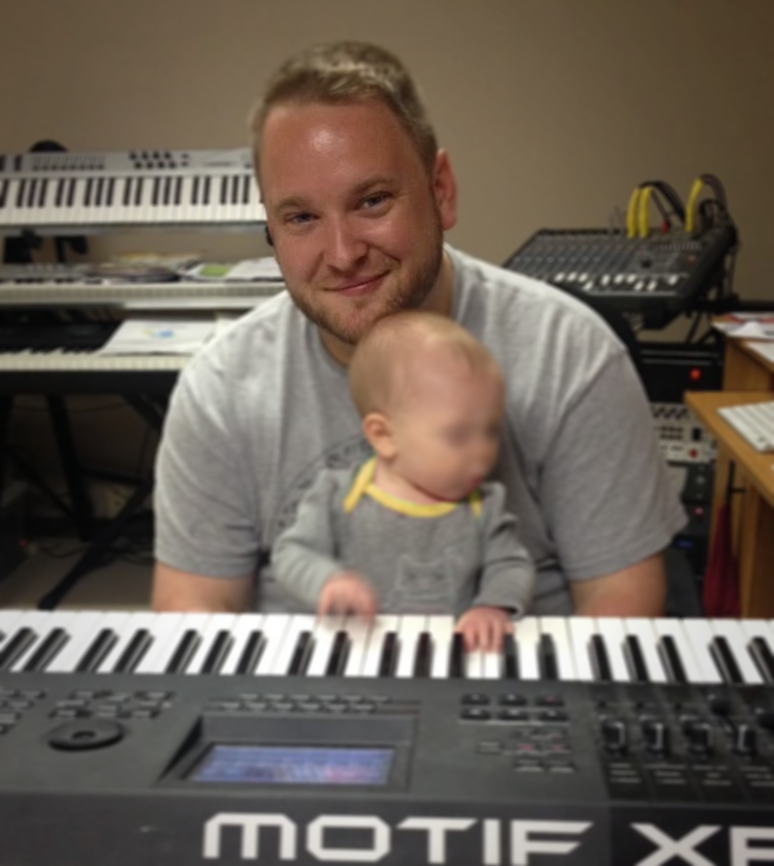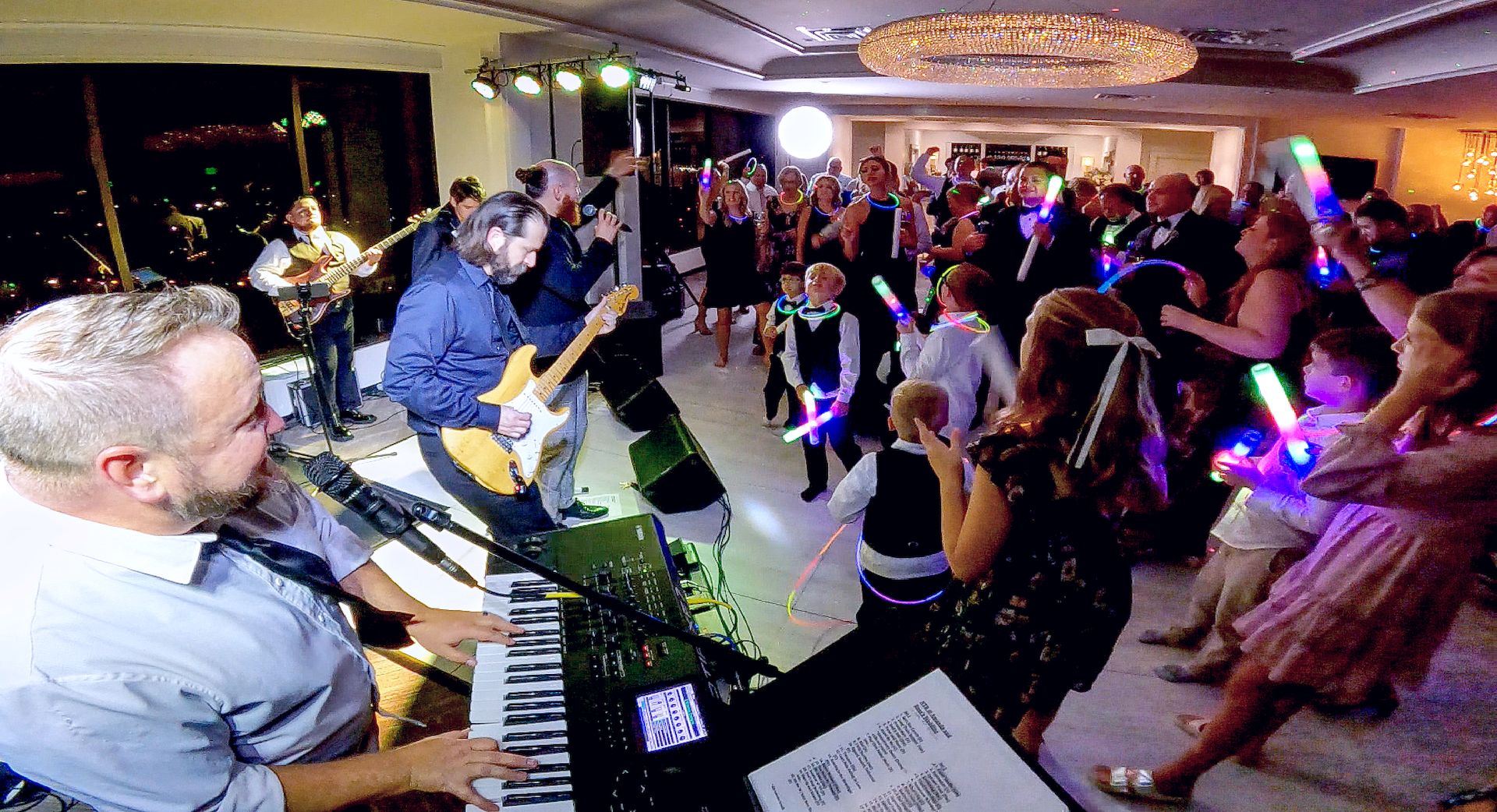🎤 Writing and Recording Your Own Music

I spent 2004 until the end of 2013 as a regular member in my first professional band (meaning we were paid for our gigs 99% of the time).
The band still performs cover music live on stage to this day, but in the early years, the first members wrote several pieces of really good original music that fit so well into the show, the fans thought the songs were just cover songs they didn't know. We did record a few of those song, but we never put out an album. It remains one of my biggest regrets from performing with that group.
If you perform live —whether as a solo singer or part of a band —you've entertained the idea of writing and recording your own music. Maybe you've already started. Or maybe the thought feels overwhelming or far off in the distance.
The truth is, you don’t need a record deal or fancy studio to get started. In fact, with today’s tools, writing and recording your own music is easier than ever.
Original music could be the best next move for you as a performer. Here are some reasons why:
Monetary Potential: Your Songs Can Make Money
Original music opens the door to multiple income streams beyond the stage:
- Streaming Revenue (Spotify, Apple Music, etc.)
- Sales (Bandcamp, iTunes, direct sales at shows)
- Sync Licensing (TV, film, commercials, YouTube creators)
Even if you're not aiming for chart-topping hits, having your own catalog of music gives you something you own and can monetize over time. Every song becomes an asset—especially if it's good and gets heard.
And let’s be real—when you’re playing live, fans want to take something home. Selling CDs, vinyl, usb flash drives, or download cards of your original work at shows? That’s a simple golden opportunity that you can control.
You’ll Have Unique Music to Perform Live
Let’s face it—there are only so many ways to cover songs like “Tennessee Whiskey” or “Valerie.”
When you write your own music, your setlist becomes yours to own. You give your audience something they can’t hear anywhere else, and that’s a powerful way to stand out in a saturated gig market.
Whether you sneak an original into your cover set or perform a full night of your own material, writing your own songs means you’re no longer just a performer—you’re an artist.
It Builds Your Musical Skillset
Writing original songs helps you:
- Grow as a musician
- Sharpen your storytelling and emotional expression
- Develop a better understanding of music structure, rhythm, and harmony
- Refine your ear and intuition
Plus, when you record what you've written—even just demos—you start to hear your music in new ways, which can influence how you arrange it, play it live, or even co-write in the future.
You’ll Start Finding “Your Sound”
This part can’t be forced, but writing and recording regularly is how it happens.
The more you create, the more you’ll uncover what feels like you. Maybe it’s a style of lyric, a chord voicing, a mood you always return to, or a vocal tone that just feels right.
"Your sound" is what makes people recognize your music even if they’ve never heard the song before. And that kind of artistic fingerprint? That’s how long-term fans are born.
It’s Personally Fulfilling (This is the reason I write my own music)
There’s something deeply satisfying about seeing a song through from idea to finished product.
Even if no one else ever hears it, the process of writing and recording music can be:
- Therapeutic
- Exciting
- Empowering
- And just plain fun
Not every original song needs to be a masterpiece. But every song teaches you something and brings you closer to being the artist you’re meant to be.
So... How Do You Get Started?
It’s actually easier than you think. You need a way to record, some knowledge how to record, and the desire to make music! Here's a basic outline of what you can use.
- Recording Gear:
You don’t need to break the bank. A simple home setup with a USB mic, an audio interface, and a DAW (Digital Audio Workstation - like Logic, GarageBand, or Ableton) can get you going. In the past, I have enjoyed using DAWs like Cakewalk Sonar and Reason for creating and Pro Tools for mixing and mastering.
🚨 WARNING: Do NOT get obsessed with needing gear.
Hit records have been made with less than 500 dollars worth of gear. Focus on mastering your skills as a musician and sound engineer. - Learning Curve? No worries.
Sites like Sweetwater are packed with helpful resources—gear guides, tutorials, and even free tech support. - AI Tools:
In the last few years, AI has changed the game. Generating chord progressions, harmonies, beat ideas, or mixing help, has become much easier with AI, but remember—it’s still your creativity driving the bus. Use AI as a tool, not a crutch.
Recording tools are more affordable, intuitive, and inspiring than ever before. You don't need to be a pro engineer. You just need a willingness to try.
Final Thoughts
If you're already performing live, you’re halfway there. You understand audiences. You know what moves people. Now imagine combining that live energy with your own original voice.
Writing and recording your own music doesn’t mean giving up gigs or changing careers—it’s about expanding your toolkit and owning more of your artistic journey.
So start small. Write a chorus. Hum a melody into your phone. Pick up a mic and hit record.
You’ve got something unique to say—and the world and I waiting to hear it!
If this post got you thinking about writing, recording, or sharing your own music, I’d love to help you take the next steps. At Danny Robertson Music, we offer online courses, performance coaching, and personalized support for musicians who are ready to grow—not just as performers, but as well-rounded entertainers and artists.
Whether you're working on your first original song or looking to level up your live show, there's a resource designed to meet you right where you are. Check it out here and let’s make your next performance truly your own.
Thanks for reading.
Danny
Be the Performer You Are Meant to Be!
Join us to start performing with confidence, purpose, and fun... one email at a time.
When you signup, you will get regular email updates with free content and product offers.



